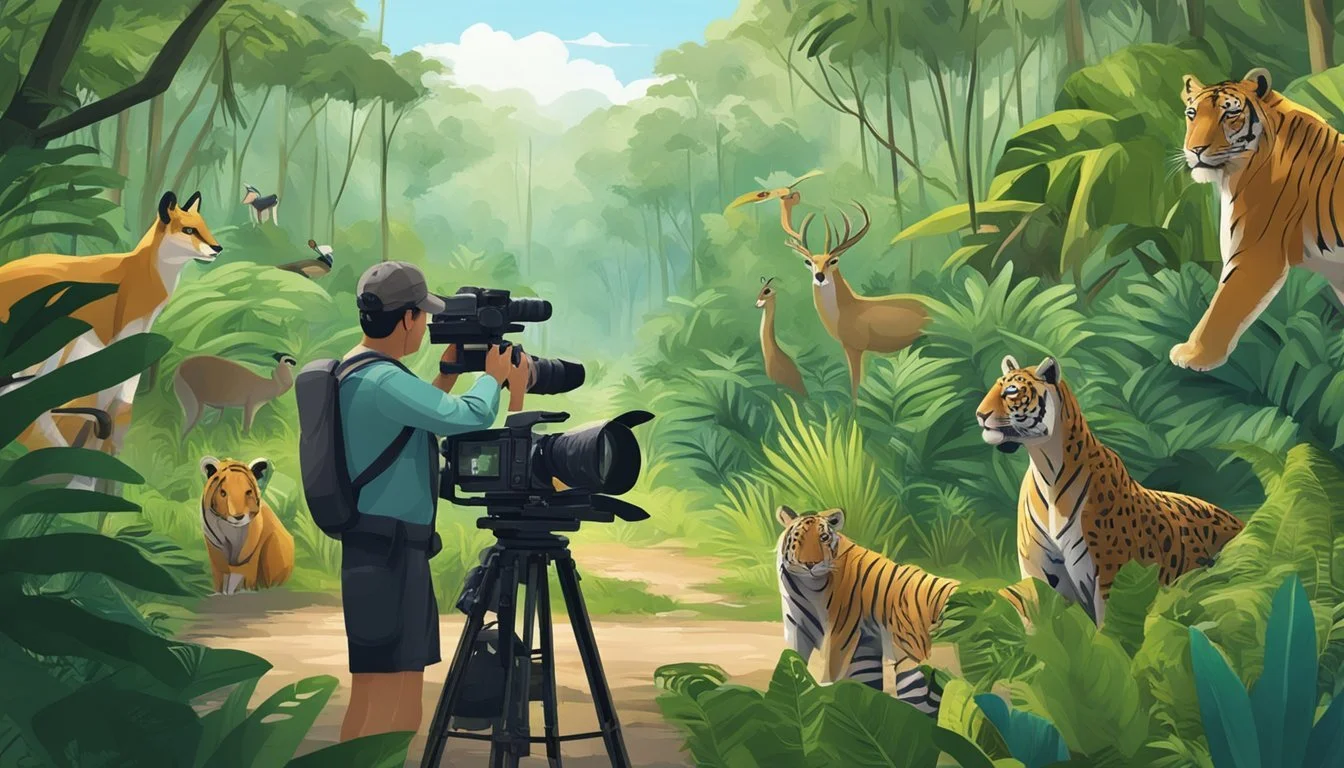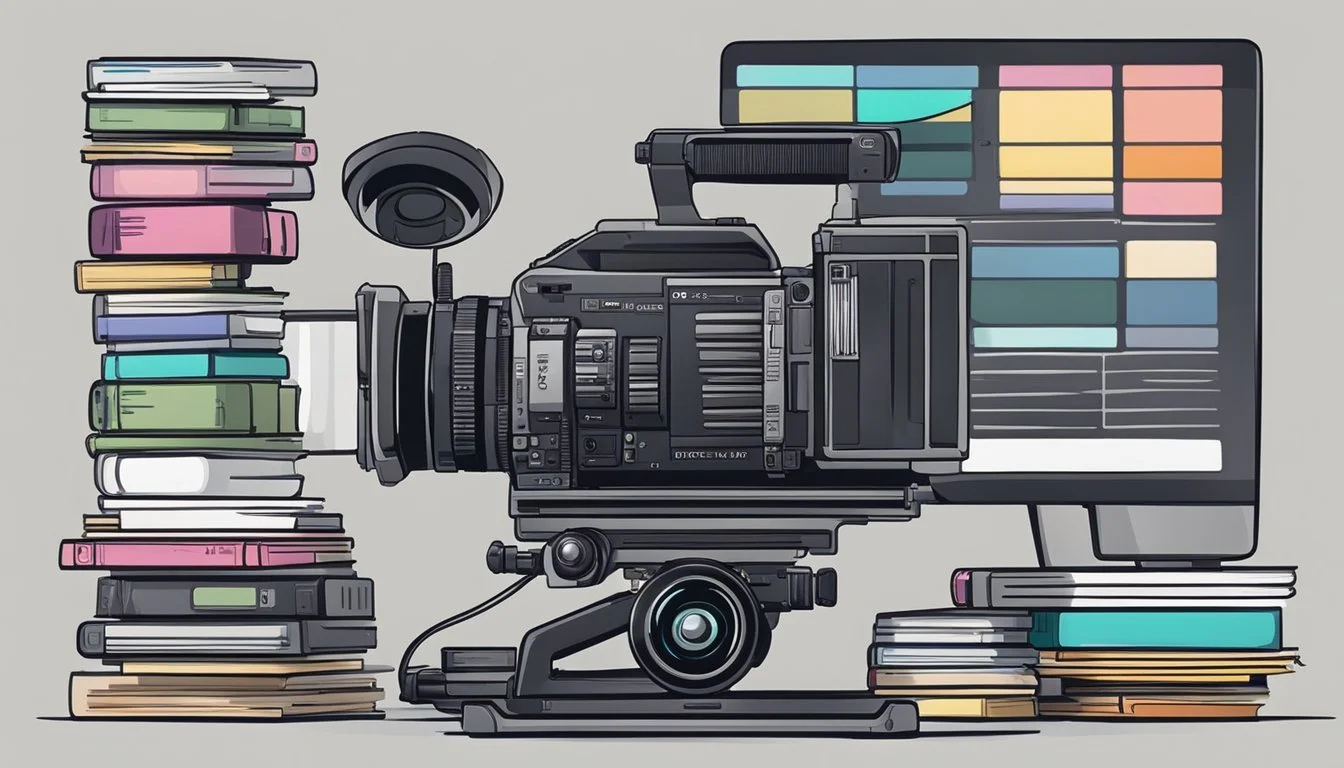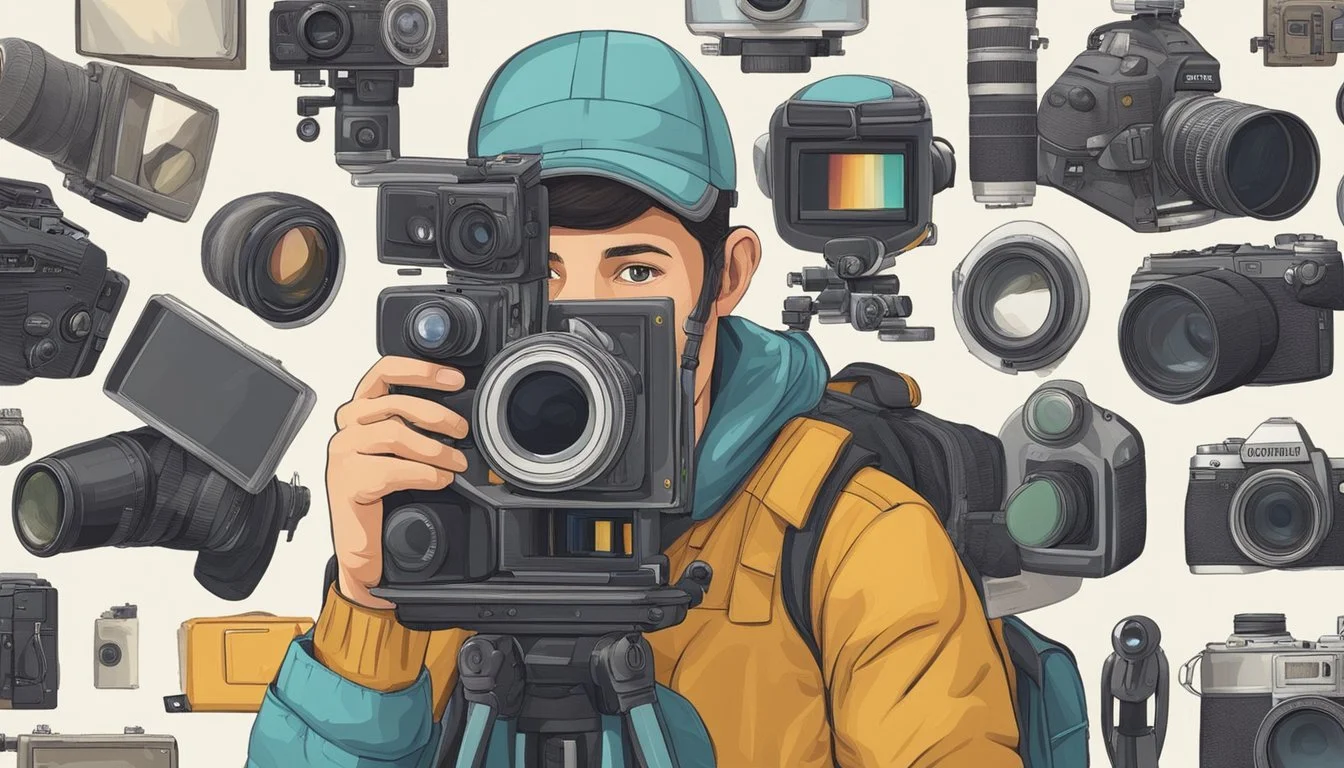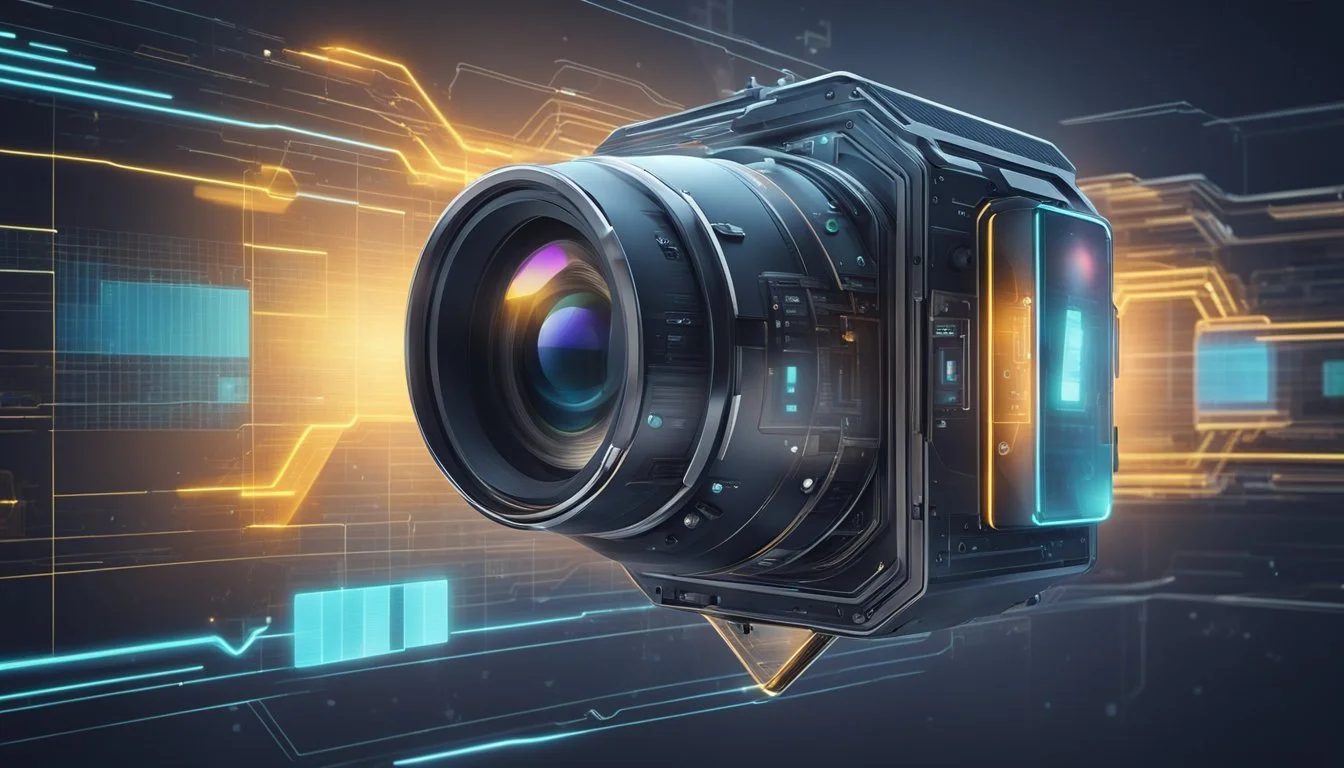Explore Groundbreaking Documentary New Releases
Exploring Untold Stories in Modern Filmmaking
Documentary films continue to captivate audiences with their ability to shed light on compelling real-life stories and issues. As we approach the end of 2024, streaming platforms are gearing up to release a fresh slate of thought-provoking documentaries. Netflix, Hulu, and other major services are set to debut several new documentary series and films in the coming months, covering topics ranging from sports controversies to true crime cases.
These upcoming releases promise to offer viewers deep dives into fascinating subjects. Netflix's "Untold" series will explore the story of soccer star Hope Solo, while Investigation Discovery plans to examine the notorious 1991 Texas cheerleader murder plot. Additionally, critically acclaimed documentaries like "To Kill a Tiger" are finding new homes on streaming platforms, bringing powerful stories to wider audiences.
The documentary landscape continues to evolve, with streaming services investing heavily in both original productions and acquisitions of existing films. This influx of new content ensures that documentary enthusiasts will have plenty of options to choose from as they seek out informative and engaging viewing experiences in the months ahead.
Evolution of Documentary Films
Documentary films have undergone significant transformations since their inception. The genre has adapted to technological advancements, societal changes, and audience preferences, evolving into diverse forms of storytelling.
From Beginnings to Modern Era
The roots of documentaries trace back to the late 19th century with the Lumière brothers' short films. These early works captured real-life scenes, laying the foundation for non-fiction filmmaking. The 1920s saw the emergence of feature-length documentaries, notably "Nanook of the North" (1922), which set a blueprint for future productions.
Post-World War II, documentaries embraced new styles. The 1960s introduced cinéma vérité, emphasizing unscripted footage and minimal intervention. Technological improvements in the 1970s allowed for more mobile filming, exemplified by "The Anderson Platoon" (1967).
Modern documentaries often focus on social issues and advocacy. They utilize various techniques, from first-person narratives to immersive experiences, to engage audiences and shed light on complex topics.
The Rise of Docuseries
The 21st century has witnessed the growing popularity of docuseries. This format expands on traditional documentaries, offering in-depth explorations of subjects across multiple episodes.
Streaming platforms have fueled this trend, providing a space for long-form storytelling. Docuseries cover a wide range of topics, from true crime to nature, allowing for deeper dives into subjects than single films.
The episodic structure of docuseries enables filmmakers to present complex narratives over time, building audience engagement. This format also allows for more comprehensive examinations of evolving stories or multifaceted issues.
The Role of Streaming Platforms
Streaming platforms have revolutionized access to documentaries, bringing diverse stories to global audiences. They've also invested heavily in producing original documentary content, expanding the genre's reach and impact.
Impact on Documentary Accessibility
Streaming services have dramatically increased the availability of documentaries. Viewers can now access a vast library of films on-demand, spanning various topics and styles. This accessibility has led to a surge in documentary viewership.
Platforms like Netflix and Amazon Prime Video offer curated collections, making it easier for audiences to discover new documentaries. The algorithmic recommendations often introduce viewers to films they might not have found otherwise.
Streaming has also enabled international distribution of documentaries that previously had limited reach. Films from different countries and cultures are now available to global audiences, fostering cross-cultural understanding.
Netflix's Contribution to the Genre
Netflix has become a major player in the documentary space. The platform invests heavily in original documentary productions, ranging from feature-length films to multi-part series.
Some of Netflix's documentaries have achieved critical acclaim and mainstream success. Titles like "Making a Murderer" and "Tiger King" sparked widespread discussions and brought new audiences to the genre.
Netflix's commitment to diverse storytelling has led to documentaries on niche subjects gaining unexpected popularity. This approach has encourage
Notable Documentary Releases
Recent documentary releases have captivated audiences with compelling stories and groundbreaking insights. These films explore diverse subjects, from athletic triumphs to social phenomena, offering viewers a window into unique experiences and perspectives.
Simone Biles Rising: A Story of Triumph
"Simone Biles Rising" chronicles the extraordinary journey of one of gymnastics' most decorated athletes. The documentary delves into Biles' early life, her rise to prominence, and her impact on the sport.
Viewers gain insight into the rigorous training regimen that shaped Biles into a world-class gymnast. The film highlights her innovative techniques and record-breaking performances at multiple Olympic Games.
Biles' advocacy for mental health in sports takes center stage, showcasing her courage in speaking out about personal struggles. Her decision to prioritize well-being during the Tokyo Olympics is explored in depth.
The documentary also touches on Biles' influence beyond gymnastics, examining her role as a role model for young athletes and her efforts to promote diversity in the sport.
Fyre: The Greatest Party That Never Happened
"Fyre" examines the infamous Fyre Festival, a luxury music event that descended into chaos. The documentary exposes the elaborate web of deception behind the failed festival.
Interviews with organizers, employees, and attendees paint a vivid picture of the event's downfall. The film details the ambitious marketing campaign that lured thousands to a tropical island with false promises.
Viewers witness the unraveling of founder Billy McFarland's grand vision as reality sets in. The documentary explores the legal and financial aftermath of the festival's collapse.
"Fyre" serves as a cautionary tale about the dangers of social media hype and unchecked ambition in the digital age.
Take Care of Maya: An Intimate Exploration
"Take Care of Maya" offers a poignant look at a family's struggle with a rare medical condition. The documentary follows Maya Kowalski, a young girl diagnosed with Complex Regional Pain Syndrome (CRPS).
The film navigates the complexities of Maya's treatment and the challenges her family faces in seeking appropriate care. Viewers witness the emotional toll of chronic pain on both Maya and her loved ones.
"Take Care of Maya" raises important questions about medical ethics and the rights of patients and families. The documentary sheds light on the often-misunderstood nature of chronic pain conditions.
Through intimate footage and interviews, the film creates a powerful narrative about resilience and the bonds of family in the face of adversity.
The Shopping Conspiracy: Consumerism Unveiled
"The Shopping Conspiracy" investigates the hidden forces driving modern consumer culture. The documentary examines marketing tactics, psychological triggers, and societal pressures that fuel excessive consumption.
Experts in psychology, economics, and marketing provide insights into the manipulation of consumer behavior. The film explores the environmental and social impacts of unchecked consumerism.
Viewers learn about planned obsolescence and its role in perpetuating the cycle of consumption. The documentary also highlights alternative lifestyles and movements challenging mainstream consumer culture.
"The Shopping Conspiracy" encourages viewers to reflect on their own purchasing habits and the broader implications of a consumption-driven society.
Themes and Subjects in Modern Documentaries
Modern documentaries tackle a wide range of themes and subjects, reflecting the complex issues and diverse stories of our time. These films shine a light on pressing sociopolitical matters and celebrate the resilience of the human spirit.
Addressing Sociopolitical Issues
Documentaries serve as powerful tools for exploring contemporary sociopolitical challenges. The Russian invasion of Ukraine has become a prominent subject, with filmmakers documenting the conflict's impact on civilians and global geopolitics.
Environmental concerns feature heavily, with films examining climate change, deforestation, and sustainable practices. Social justice topics like racial inequality, gender discrimination, and LGBTQ+ rights also take center stage in many documentaries.
Economic disparities and wealth inequality are recurring themes, often highlighting the struggles of working-class communities. Some films investigate corporate misconduct, government corruption, and the influence of big tech on society.
Celebrating Human Struggles and Achievements
Award-winning documentaries frequently showcase inspiring stories of human perseverance and accomplishment. These films spotlight individuals overcoming adversity, from athletes pushing physical limits to activists challenging oppression.
Cultural preservation efforts are documented, highlighting communities working to maintain traditions in the face of globalization. Scientific breakthroughs and technological innovations feature in documentaries that capture humanity's quest for knowledge.
Artistic endeavors and creative processes are explored, offering insights into the minds of musicians, painters, and other artists. Personal journeys of self-discovery and transformation provide intimate glimpses into the human experience.
Documentaries also celebrate collective achievements, from grassroots movements effecting social change to international collaborations addressing global challenges.
Behind the Scenes of Documentaries
Documentary filmmaking involves intense planning, creative problem-solving, and collaboration. Filmmakers like Orlando von Einsiedel and Nic Stacey navigate complex production challenges to bring compelling stories to life.
The Filmmaking Process
Pre-production for documentaries often begins with extensive research and subject interviews. Filmmakers develop a shooting script or outline to guide their work. On location, crews capture footage using a mix of planned shots and spontaneous moments.
Directors like von Einsiedel prioritize building trust with subjects to encourage authentic on-camera interactions. Sound recordists use specialized equipment to capture clear audio in unpredictable environments.
In post-production, editors sift through hours of footage to craft a cohesive narrative. This stage may involve additional interviews or voiceover recording to fill gaps in the story.
Challenges and Rewards
Documentary filmmakers face unique obstacles in the field. Unpredictable weather, limited access to locations, and equipment failures can derail shooting schedules. Nic Stacey and his peers often work with small crews, requiring team members to take on multiple roles.
Ethical considerations play a significant part in documentary production. Filmmakers must balance truthful storytelling with subject privacy and safety concerns. This is especially crucial when covering sensitive topics or working in dangerous areas.
Despite these challenges, documentarians find their work deeply rewarding. Bringing untold stories to light and sparking public discourse on important issues drives many in the field. The opportunity to connect audiences with real-world subjects and experiences remains a powerful motivation for documentary creators.
Economic Aspects of Documentaries
Documentary filmmaking intersects with economic realities in several key ways. Funding sources and budget constraints shape the production process, while consumer behavior and modern shopping habits influence distribution and viewership.
Funding and Budgeting
Documentary filmmakers often face financial challenges in bringing their projects to life. Crowdfunding platforms have emerged as popular options for raising capital. Kickstarter and Indiegogo allow creators to pitch directly to potential backers.
Traditional funding sources include grants from arts organizations, government agencies, and charitable foundations. Some filmmakers secure private investors or studio partnerships.
Budget constraints can impact production quality and scope. Equipment costs, travel expenses, and post-production fees add up quickly. Many documentarians work with lean crews to stretch limited resources.
Consumer Perspectives and 'Buy Now' Culture
The rise of streaming platforms has changed how audiences consume documentaries. Netflix, Amazon Prime Video, and Apple TV+ invest heavily in original documentary content.
"Buy now" buttons integrated into streaming interfaces allow viewers to purchase related products instantly. This taps into impulse buying tendencies.
Amazon's X-Ray feature provides additional information about people and topics featured in documentaries, often linking to relevant products. This seamlessly blends educational content with shopping opportunities.
Apple's ecosystem connects documentary viewing on Apple TV+ with its App Store and Apple Books, creating a multi-platform experience for engaged viewers.
The Future of Documentaries
Documentary filmmaking is poised for significant changes in the coming years. New technologies and shifting audience preferences are reshaping how these non-fiction stories are created and consumed.
Emerging Trends and Predictions
Interactive documentaries are gaining traction, allowing viewers to engage with content in novel ways. Streaming platforms are investing heavily in documentary content, leading to more diverse and niche subjects being explored. Short-form documentaries are becoming popular, catering to shorter attention spans and mobile viewing habits.
Virtual reality (VR) documentaries are emerging as a powerful medium for immersive storytelling. This technology enables viewers to experience environments and situations firsthand, enhancing empathy and understanding.
Social media platforms are increasingly becoming venues for documentary premieres and distribution. This trend is democratizing access to documentary content and allowing for real-time audience engagement.
Technological Advancements
Artificial intelligence is revolutionizing documentary production. AI-powered tools can assist in sorting through vast amounts of footage, streamlining the editing process. Machine learning algorithms can also help identify patterns and connections in data, aiding investigative documentaries.
Drone technology is enhancing aerial cinematography, providing stunning visuals and access to previously unreachable locations. This technology is particularly valuable for nature and environmental documentaries.
Advanced CGI and animation techniques are being integrated into documentaries, allowing for more creative visualizations of historical events or scientific concepts. These tools help make complex subjects more accessible to viewers.
5G networks are enabling higher quality streaming and more seamless VR experiences, potentially transforming how documentaries are consumed on mobile devices.
Deep Dives
Documentary filmmakers plunge into the depths of their subjects, uncovering hidden truths and compelling narratives. Their meticulous research and innovative storytelling techniques bring untold stories to light.
Filmmaker Spotlights
Laura Poitras gained acclaim for her in-depth explorations of complex issues. Her Oscar-winning "Citizenfour" provided an unprecedented look into Edward Snowden's NSA revelations. The film combined real-time footage with expert interviews to craft a riveting narrative.
Werner Herzog's unique approach blends factual reporting with philosophical musings. His documentary "Into the Inferno" examined volcanoes and their impact on human cultures. Herzog's distinctive narration style added depth to the visual spectacle.
Ava DuVernay's "13th" delved into the U.S. prison system and racial inequality. She used archival footage and expert commentary to trace historical connections between slavery and mass incarceration.
Case Studies of Pivotal Documentaries
"The Act of Killing" by Joshua Oppenheimer took an unconventional approach to examining Indonesia's 1965-66 genocide. The film asked perpetrators to reenact their crimes, resulting in chilling revelations about human nature and historical memory.
"Free Solo" captured Alex Honnold's death-defying climb of El Capitan without ropes. Directors Jimmy Chin and Elizabeth Chai Vasarhelyi balanced thrilling climbing footage with intimate character study.
"The Cove" exposed dolphin hunting practices in Japan. Director Louie Psihoyos employed covert filming techniques to document the controversial practice, sparking international debate and conservation efforts.







